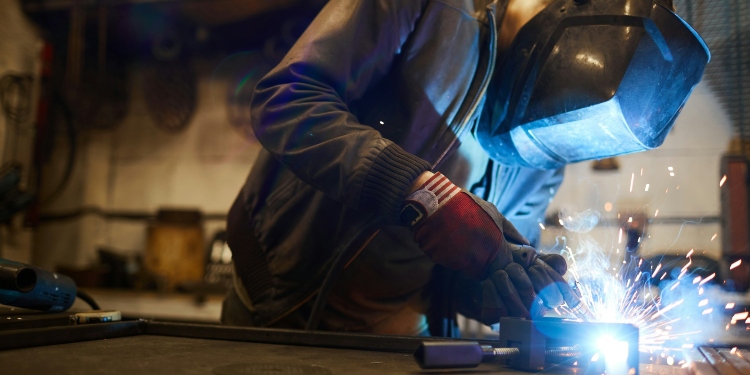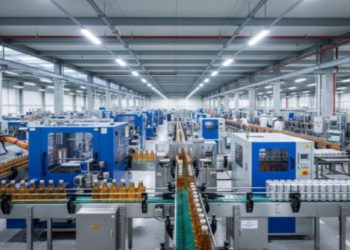In recent years, industrial manufacturing has rapidly evolved, and welding systems and machines have played a central role in this development. The demands for precision and efficiency are constantly increasing, while the use of new technologies is revolutionizing production. Particularly in the field of welding, machines have gained the ability to work with higher accuracy and reduced downtime, significantly boosting productivity across various industries. Whether in the automotive industry, construction, or aerospace – welding systems are essential for optimizing modern manufacturing processes.
Key Technologies in the Field of Welding Systems
Welding systems have undergone significant changes with the introduction of new technologies. Traditional methods like arc welding are still in use, but innovative processes now offer more efficient and precise solutions. This includes technologies like laser and plasma welding, which provide higher accuracy and less material waste. Additionally, cd welding has become a leading method, as it allows for faster and more sustainable material bonding, making it ideal for demanding industrial applications.
Another major advancement is the increasing automation of welding processes. Robot-assisted welding systems enable even more precise and faster production, leading to improved efficiency. These developments ensure that welding systems not only operate more quickly but also offer greater versatility, enhancing flexibility in the creation of complex structures.
“Choosing the right welding machine can make the crucial difference between a successful and an inefficient production process.”
The requirements for welding machines vary depending on the application and production needs. For example, the aerospace industry requires highly precise welding processes that can remain stable under extreme temperatures. In contrast, pipeline construction requires robust machines capable of handling large volumes of material. It is increasingly important for companies to select the right machine for their specific needs to ensure long-term efficiency and quality.
Applications of Welding Machines in Modern Industry
The use of welding systems spans a wide range of industries, from automotive to household appliance manufacturing. These machines are essential for creating durable products by enabling precise connections that guarantee mechanical stability and quality. One common application is in the automotive industry, where welding machines are used to manufacture body parts and chassis. Precision and repeatability are crucial here to meet high standards.
Moreover, welding systems are widely used in the construction industry. Whether it’s bridges, buildings, or industrial facilities, high-quality welds are critical to providing the necessary structural stability. In construction, the machines used must be extremely robust to withstand the harsh conditions they encounter. Modern welding machines offer high adaptability and can be used for both intricate welding tasks and large-scale bonding.
Industries commonly relying on welding machines:
- Automotive industry
- Aerospace
- Construction
- Heavy industry
- Electronics manufacturing
Which Welding Systems Are Right for Your Business?
Choosing the right welding system depends on various factors that vary from business to business. Small operations specializing in custom projects might benefit from semi-automatic welding machines. These offer flexibility and precision while remaining cost-effective. For larger production facilities that manufacture mass goods, fully automated welding systems are ideal. They offer high production rates and can operate around the clock, maximizing efficiency.
In addition to the size and capacity of the company, factors like material variety and the type of production must also be considered. Companies that regularly weld different materials need machines that can handle both thin and thick materials. In this context, adaptability and versatility are key.
Safety and Maintenance: An Often Overlooked Factor
Safety when operating welding systems and machines should always be a top priority. Welding processes involve potentially dangerous conditions that, when mishandled or poorly maintained, can lead to accidents. The use of high temperatures, electrical currents, and toxic gases necessitates strict safety measures to protect workers from injuries. It is especially important to follow personal protective equipment (PPE) guidelines, such as wearing welding helmets, safety glasses, and heat-resistant clothing. Moreover, specific scenarios, such as where lasers are used, using equipment such as laser safety glasses, can be important for eye protection. These measures prevent sparks, hot metal fragments, wavelengths of light emitted by lasers, and radiation from causing harm.
Regular maintenance of the machines is also crucial. Ongoing care and inspections can detect and resolve potential problems early on. This not only increases employee safety but also extends the lifespan of the machines, further boosting efficiency. Many modern welding systems now offer integrated diagnostic systems that inform users when maintenance is required, making the process even safer and more effective.
In addition to technical maintenance, employee training is a vital part of safety. Workers need comprehensive training in machine operation to ensure both correct usage and appropriate responses in emergency situations. Proper training helps minimize workplace accidents and ensures optimal machine utilization.
Important safety measures:
- Use of protective gear (helmets, glasses, heat-resistant clothing)
- Regular maintenance and inspection of welding machines
- Employee training in machine operation
- Inspection of ventilation systems to reduce toxic gases
- Ensuring emergency shut-offs are always accessible
Conclusion: Welding Machines for Maximum Productivity and Safety
Welding systems and machines are indispensable tools in modern industry. Choosing the right equipment can be the difference between success and failure in a project. With the use of modern technologies like cd welding and automation, production efficiency can be significantly enhanced. At the same time, companies must never overlook the importance of safety and regular maintenance.
To remain competitive, welding systems must be both powerful and safe. Only through comprehensive planning, selection, and care of the machines can the maximum benefit be achieved in the long term. In a time where efficiency and precision are becoming increasingly important in the industry, modern welding machines offer the potential to elevate production processes to a new level.
David Prior
David Prior is the editor of Today News, responsible for the overall editorial strategy. He is an NCTJ-qualified journalist with over 20 years’ experience, and is also editor of the award-winning hyperlocal news title Altrincham Today. His LinkedIn profile is here.


![7 Best POS Software in the UK [2026 Edition]](https://todaynews.co.uk/wp-content/uploads/2026/02/7-Best-POS-Software-in-the-UK-2026-Edition-360x180.png)










































































